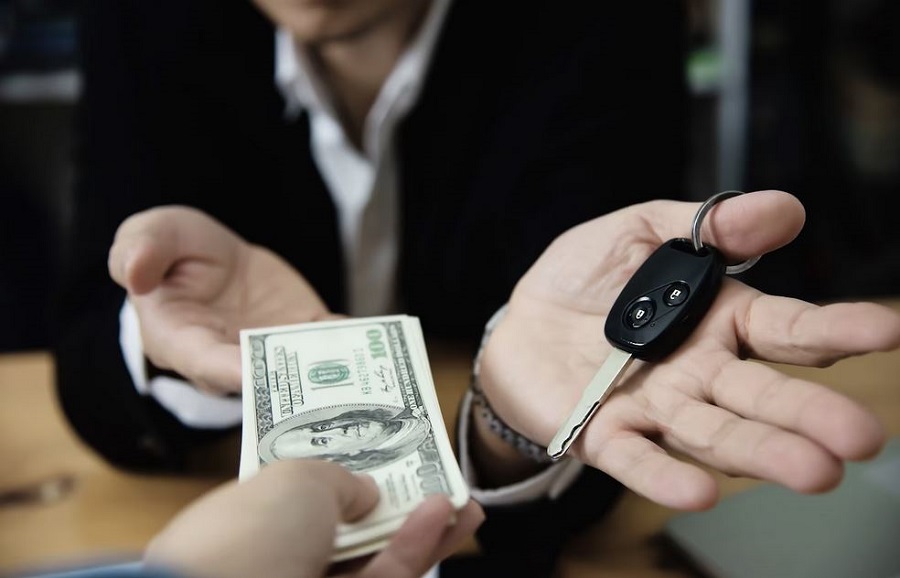If you’re considering buying a car, you may be wondering if you should buy it outright or lease it instead. Both options have their advantages and disadvantages, and ultimately, the decision comes down to your personal needs and circumstances. In this article, we’ll take a closer look at the pros and cons of buying vs leasing a car so that you can make an informed decision.
1. Buying a Car

Pros of Buying a Car
● Ownership
Perhaps the most obvious advantage of buying a car is that you will own it outright once you have paid off your loan. This means that you can modify the car to your liking, drive it as much as you want, and keep it for as long as you want without worrying about mileage restrictions or having to return it to a dealership.
● No Mileage Restrictions
When you lease a car, there are typically mileage restrictions that you must adhere to, or you will have to pay a fee for every mile over the limit. When you buy a car, you can drive as much as you want without worrying about these restrictions.
● No Monthly Payments
After the Loan Is Paid Off When you finance a car, you will have monthly payments until the loan is paid off. However, once the loan is paid off, you will no longer have to make payments. This can save you a significant amount of money in the long run compared to leasing, where you will have to make monthly payments for as long as you lease the car.
● Equity
When you buy a car, you are building equity. This means that the car has value and can be sold or traded in at a later date. This is not the case when you lease a car, as you will have to return it to the dealership at the end of the lease term.
● Lower Long-Term Costs
While buying a car may require a larger upfront investment, it can save you money in the long run. When you buy a car, you will not have to worry about the depreciation that comes with leasing a car. Additionally, you may be able to sell the car for a higher price than the residual value of a leased car, which can further reduce your long-term costs.
buying a car has several advantages, including ownership, no mileage restrictions, no monthly payments after the loan is paid off, equity, and lower long-term costs. However, it is important to consider your personal circumstances and financial situation before deciding whether to buy or lease a car.
Cons of Buying a Car
● Higher Upfront Costs
Buying a car typically requires a larger upfront investment compared to leasing. This is because you will need to pay for the full purchase price of the car, as well as any associated taxes, fees, and insurance costs.
● Maintenance Costs
When you own a car, you are responsible for all maintenance and repair costs. This can include routine maintenance such as oil changes and tire rotations, as well as unexpected repairs that may arise. These costs can add up quickly and may be difficult to budget for.
● Depreciation
Cars depreciate in value over time, which means that the car you buy today will be worth less in the future. This can make it more difficult to recoup your initial investment if you decide to sell the car in the future.
● Risk of Negative Equity
If you take out a loan to finance the purchase of your car, there is a risk of negative equity. This occurs when you owe more on your car loan than the car is worth. This can happen if the value of your car depreciates faster than you are paying down your loan balance.
● Limited Flexibility
When you own a car, you are responsible for it and cannot simply return it to the dealership if you no longer need it. This can limit your flexibility if your circumstances change and you need to get rid of the car.
While buying a car has its benefits, it is important to also consider the potential drawbacks. Higher upfront costs, maintenance costs, depreciation, risk of negative equity, and limited flexibility are all factors that should be taken into account when deciding whether to buy or lease a car. It is important to carefully evaluate your personal circumstances and financial situation before making a decision.
2. Leasing a Car

Pros of Leasing a Car
Leasing a car has become a popular alternative to buying a car, as it offers several benefits that buying does not. In this article, we will discuss some of the pros of leasing a car.
● Lower Monthly Payments
One of the biggest advantages of leasing a car is that it typically requires lower monthly payments than buying. This is because you are only paying for the depreciation of the car during the lease term, rather than the full purchase price.
● No Down Payment
Leasing a car often requires little to no down payment, which can make it more affordable for those who do not have a large sum of money available upfront.
● No Maintenance Worries
When you lease a car, the manufacturer’s warranty typically covers all routine maintenance and repairs, which can save you money and hassle. This means that you do not need to worry about unexpected repair costs or budgeting for routine maintenance.
● Drive a New Car Every Few Years
Leasing a car allows you to drive a new car every few years, which can be appealing for those who enjoy having the latest features and technology in their cars. This also means that you do not need to worry about selling or trading in your old car.
● Flexibility
Leasing a car provides more flexibility than buying, as you are not locked into a long-term commitment. At the end of the lease term, you have the option to return the car and walk away or lease a new car.
Leasing a car has many benefits, including lower monthly payments, no down payment, no maintenance worries, the ability to drive a new car every few years, and flexibility. However, it is important to carefully consider your personal circumstances and financial situation before deciding whether to lease or buy a car. It is also important to read the fine print and understand the terms and conditions of the lease agreement before signing.
Cons of Leasing a Car
While leasing a car has its benefits, it also has some drawbacks that should be considered before deciding whether to lease or buy a car. In this article, we will discuss some of the cons of leasing a car.
● No Equity
When you lease a car, you are essentially renting it for a set period of time. At the end of the lease term, you do not own the car and have no equity in it. This means that you cannot sell the car or trade it in for a new one, as you would be able to do if you owned the car.
● Mileage Restrictions
Most lease agreements come with mileage restrictions, which can limit your freedom to drive as much as you want. If you exceed the mileage limit, you will be charged for every additional mile, which can add up quickly.
● Fees and Penalties
Lease agreements often come with a variety of fees and penalties that can be costly. For example, you may be charged for excessive wear and tear on the car or for terminating the lease early.
● No Customization
When you lease a car, you are not allowed to make any modifications or customizations to it. This means that you cannot add any aftermarket parts or accessories, which can be a drawback for those who enjoy customizing their cars.
● Higher Insurance Costs
Leasing a car typically requires higher insurance costs than buying, as leasing companies often require more comprehensive coverage. This can be more expensive than the minimum coverage required for a purchased car.
Conclusion
As you can see, there are pros and cons to both buying and leasing a car. If you value ownership and want to keep your car for many years, buying may be the right choice for you. However, if you want lower monthly payments and don’t mind not owning the car, leasing may be a better option.
Ultimately, the decision comes down to your personal needs and circumstances, so it’s important to do your research and consider all of your options before making a decision.

